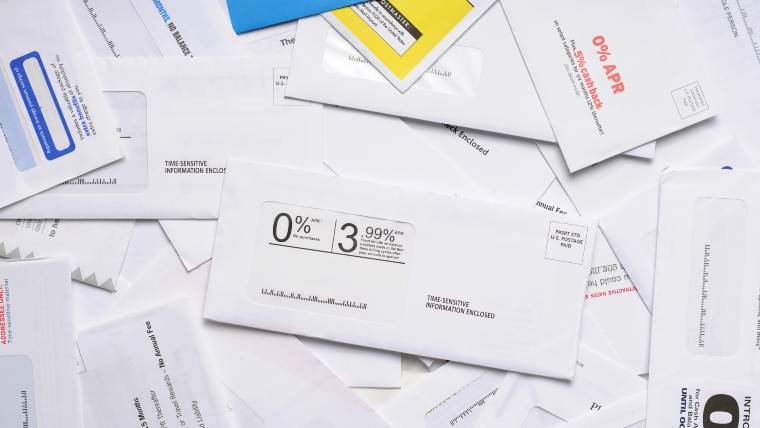How to Opt Out of Nearly Everything

The world is full of advertising. There are so many products and services crammed into the marketplace, each trying desperately to grab your attention. Sometimes it feels like there’s never a moment when you aren’t being advertised to.
You can’t do much about the billboards on the freeway or the previews that play before every movie, but you can cut back on some other forms of unsolicited advertising. Here are a few handy ways to opt out of unwanted marketing.
Say goodbye to telemarketers
You’re probably already aware of the national Do Not Call list, but if not, today’s your lucky day! If you find yourself harassed with offers for services you don’t want or need, you can simply register your phone number with this national list and the calls will end…eventually. You still may receive unwanted calls for 31 days after completing your registration, which is good for five years. After that you’ll need to re-register.
You can add your phone number to the Do Not Call list by visiting DoNotCall.gov or calling 888.382.1222 from the phone number you’d like to have added to the list.
No more credit card offers
About 25 percent of my mail on any given day is credit card offers I have no interest in pursuing. It seems wasteful (that’s an awful lot of paper) and somewhat annoying (I like to shred each unsolicited offer for safety sake). Thankfully, there’s a way to opt out of receiving these kinds of offers.
If you’re sick of getting credit card applications in the mail, visit OptOutPrescreen.com. The Fair Credit Reporting Act (FCRA) gives consumers the right to opt out of the consumer lists used by creditors and insurers. The opt-out lasts for five years.
If you prefer, you can also opt out by calling 888.567.8688.
Control your junk mail
If you’re tired of the seemingly random advertisements that show up in your mailbox every day, unfortunately there’s no government-mandated list you can opt out of. Thankfully, however, you can still opt out of most unsolicited direct mailings.
The Direct Marketing Association (DMA) is a marketing trade organization representing approximately 3,600 companies. They offer a direct marketing opt out via DMAChoice.org. By completing the registration at DMAChoice.org you can limit or cut off direct marketing from any and all of DMA’s member organizations. It may take up to 90 days for the registration to kick in, and you may still receive some junk mail (from companies who are not a part of the DMA).
Manage your inbox
Do you get a lot of unwanted advertising in your inbox? That’s simple enough to control.
Thanks to the CAN-SPAM Act of 2003, any “electronic mail message the primary purpose of which is the commercial advertisement or promotion of a commercial product or service” must contain a visible and operable unsubscribe mechanism somewhere within the email. That unsubscribe button is usually down at the bottom of the email.
Whenever you receive an email offer and think, “Man, I hope I never get another one of these,” scroll down to the end of the email and click “Unsubscribe.” Your wish has been granted!
The internet knows you better than you do
If you spend any significant amount of time on the internet you’ve probably noticed something about the advertisements being served to you: they seem to really know what you like. You’re not going crazy. Your browser, the program you use to surf the web, remembers where you’ve been and what you’ve looked at. Marketers – always looking for whatever edge they can find – use that information to funnel advertisements appropriate for your interests.
There are two ways to look at this kind of data-collection. On the one hand, there’s something to be said for receiving advertisements for things you may legitimately want and need. On the other hand, giving advertisers access to your web travels might feel a touch invasive.
What should you do about it? That’s up to you. The Network Advertising Initiative has a number of great resources to help you control what information you leave available to advertisers, including two separate opt-out tools that allow you to block advertisements from specific companies. Opting out doesn’t mean you won’t receive advertisements while online (that’s how most websites generate revenue), it just means that advertisers won’t have access to your browser history.
Article updated August 2020

















